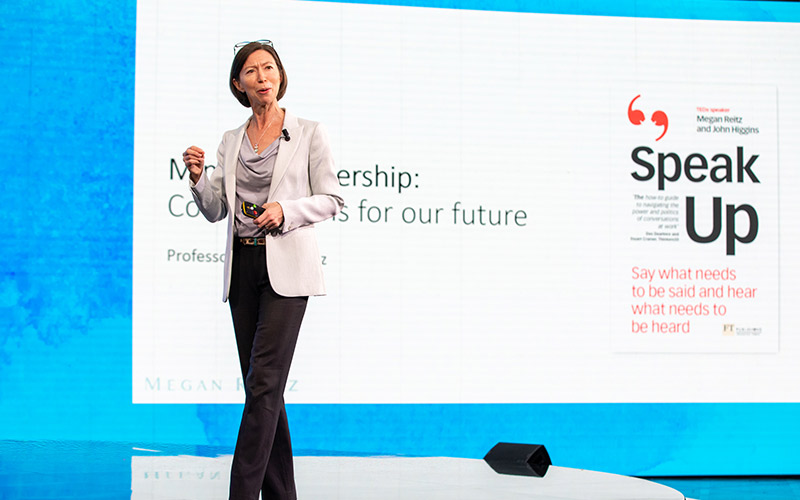
Our habits are an important part of who we are. And when we’re leaders, these habits impact the people around us. At Confluence, Megan Reitz, Thinkers50, Academic and Author took the stage to focus on how we can flourish in our workplaces through the way we speak, listen to, learn from and care for others.
Management is shifting to incorporate fresh thoughts and ideas, but if we don’t provide the psychological safety to voice them, all of our other efforts to encourage viewpoints are in vain. Our leadership practice is defined by the times we choose to speak up, the times we listen, what we say, who we hear, and who we don’t. Making it vital that we pay attention to the way we communicate.

Key Takeaways

Leaders, Listen Up
People speak up depending on how leaders show up. It affects the voices around them in the organization and limits what they get to hear. Create an environment where people don’t have to be ‘brave’ to speak up as they don’t need to be.

Empathy Empowers Employees
Leaders can speak up because they are used to being heard. And they perceive that to be the case for everyone in the organization. So, there’s a need to be aware of the role labels play in what one gets to hear.

Foster Forthright Communication
The need of the hour is leaders who can acknowledge that their judgment might be partial. And filling in those blind spots requires them to make it easy for others to present various viewpoints, paving the way for new ideas.

Know Your Face
Expressions can range from “shut up” to “speak up”. And it’s this silent language through facial expressions that either encourage or discourage subordinates while voicing out their viewpoints to their leaders.
Speaking up is relational. I speak up depending on how you show up.





